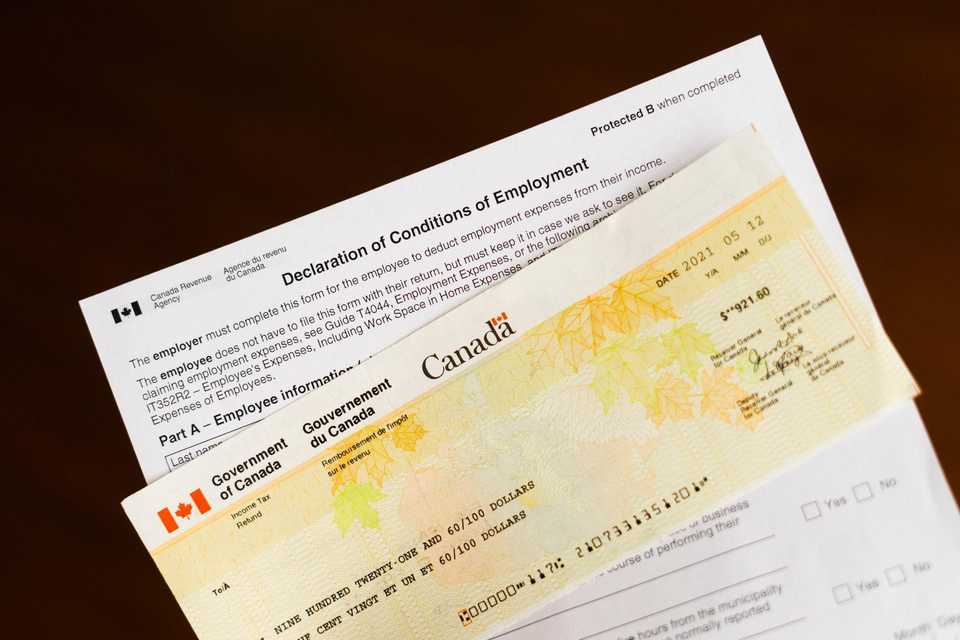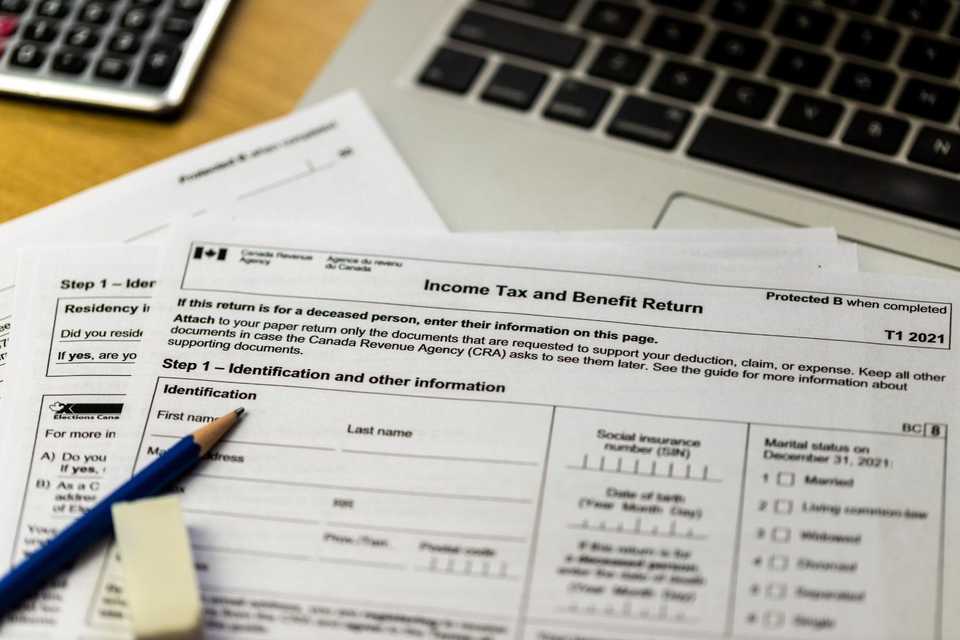Navigating the complex tax laws and regulations in Ontario can be a daunting task for both individuals and businesses.
This is where the expertise of a skilled tax lawyer becomes invaluable.

Whether it's ensuring compliance with the latest tax laws, resolving disputes with the Canada Revenue Agency (CRA), or optimizing your tax situation, a tax lawyer can provide the guidance and representation you need.
Keep reading to learn more from JuriGo on the benefits of hiring a tax lawyer in Ontario and how to find the right one for your specific situation!
Understanding Ontario’s tax laws
Ontario's tax system is a blend of federal and provincial tax laws, creating a complex framework that affects every taxpayer in the province. From the rates applied to different income brackets to the specific deductions and credits available, the system is designed to be fair but can often feel intricate and overwhelming.
Both individuals and businesses face several common challenges, including:
- Determining tax liability: Understanding how much tax you owe, or what your business is required to pay, involves navigating various rates and rules.
- Tax planning: Effective tax planning to minimize liabilities and maximize returns is a complicated process that requires in-depth knowledge of current laws.
- Compliance: Staying up-to-date with the latest changes in tax legislation to ensure full compliance can require significant time and expertise.
How are tax lawyers different from accountants?
The areas of expertise, services offered, and the nature of the advice tax lawyers and accountants provide can vary significantly.
The role of tax lawyers
For instance, tax lawyers specialize in the legal aspects of tax law. They have a deep understanding of the federal Income Tax Act and are able to navigate complex legal tax disputes.
Tax lawyers can represent clients in disputes with the CRA and handle cases involving tax evasion, fraud, and litigation. They can also provide strategic advice on structuring transactions and investments in a tax-efficient manner, considering legal implications.
The role of accountants
Accountants have a broad understanding of financial matters, including tax laws. They are well-equipped to manage accounting records, prepare financial statements, and ensure compliance with tax filing requirements.

Accountants primarily assist with the preparation and filing of tax returns, maximizing deductions and credits to reduce tax liabilities. They can also represent clients during audits by the CRA, providing necessary financial documentation and explanations for tax filings. Accountants may also offer advice on budgeting, financial planning, and investment strategies with tax implications in mind.
What are the main differences?
For starters, tax lawyers focus on the legalities of tax issues, while accountants focus on the financial aspects of tax compliance and planning.
Lawyers are best for legal advice, dispute resolution, and complex tax planning, while accountants are your go-to for tax return preparation, audit assistance, and financial advice.
How can a tax lawyer help you?
Whether you're a Canadian resident confused by your tax obligations or a non-resident with Canadian income sources, understanding these laws is important. Besides representing you in court, here are examples of how a tax lawyer can assist you:
Understanding definitions and interpretations
Canada’s Income Tax Act mandates that every person residing in Canada at any time during the year must pay taxes on their taxable income. This can include non-residents who have been employed in, carried on a business, or disposed of taxable property in Canada. A tax lawyer can clarify your status and ensure you meet your obligations without overpaying.
A lawyer can also help you understand definitions and interpretations of the Income Tax Act. For instance, the Act defines who is a “person” and a “taxpayer”, as well as the various income sources that exist, such as employment, business, property, and capital gains.
Determining residency for tax purposes
The criteria for being considered a resident for tax purposes are broad, making it easy to be classified as such and challenging to break free from this status. Tax lawyers can help by offering strategies for those with high mobility seeking non-residency status as a means to manage their tax liabilities.
Income sources and taxable income calculation
Canadian tax law categorizes income into sources. Determining taxable income involves calculating net values from these sources and applying deductions, which can be a complicated process. A tax lawyer can help you navigate these calculations, ensuring you leverage all allowable deductions and accurately report your income.
Minimizing tax liability
The Canadian tax system includes mechanisms like the Alternative Minimum Tax (AMT) to ensure that high-income earners pay their fair share of taxes. However, understanding how to calculate tax liability under both regular and AMT methods can be complex. As such, a tax lawyer can provide advice on legal strategies to minimize your tax liability while complying with the law.
Tax optimization strategies with a specialized lawyer!
For individuals and businesses in Ontario, a tax lawyer can identify tax-saving opportunities that may not be immediately obvious, helping to ensure that you're not only compliant with the law but also taking full advantage of available deductions and credits. Here are ways a tax lawyer can assist in tax optimization:
- Personalized tax planning: They tailor tax strategies to your specific financial situation, considering your income sources, investments, and long-term financial goals.

- Estate and succession planning: By structuring your estate efficiently, you can minimize estate taxes and ensure a smooth transfer of assets to your heirs.
- Business structure advice: For entrepreneurs, selecting the right business structure (e.g., sole proprietorship, partnership, corporation) can significantly impact tax liabilities.
Examples of tax optimization strategies
For individuals, examples of tax optimization strategies that a tax lawyer can support you with include:
- Investing in tax-efficient ways: Using Registered Retirement Savings Plans (RRSPs) and Tax-Free Savings Accounts (TFSAs) can significantly reduce your taxable income and grow your investments tax-free.
- Income splitting: Techniques such as spousal loans and certain types of trust arrangements can help distribute income among family members who are taxed at lower rates.
- Charitable giving: Making charitable donations not only supports worthy causes but also provides tax credits that reduce your tax bill.
For businesses, tax optimization examples may include:
- Small business deduction: Corporations can benefit from the small business deduction, which reduces the federal tax rate on the first $500,000 of active business income.
- Capital cost allowance: Leveraging the rules on depreciation for tax purposes can help businesses reduce taxable income by writing off the cost of capital assets.

- Scientific Research and Experimental Development (SR&ED) credits: Companies engaged in research and development can take advantage of SR&ED tax incentives, which offer tax credits and deductions for these expenses.
What should you look for when hiring a tax lawyer in Ontario?
Credentials and education
In Ontario, a tax lawyer should be a member in good standing with the Law Society of Ontario. This ensures they meet the professional and ethical standards required to practice law in the province.
While not necessary, you could look for lawyers who have furthered their education in taxation, such as by obtaining a Master of Laws (LL.M) in Taxation, which will be a testament to their specialized knowledge in tax law.
Communication skills
You want someone who can clarify the intricacies of tax law, outline your options, and explain the potential outcomes of your case. A good tax lawyer should be approachable and responsive, keeping you informed every step of the way.
Strategic thinking
Look for a lawyer who demonstrates strategic thinking — someone who can foresee potential issues and plan several steps ahead. This quality is crucial for minimizing liabilities, maximizing tax benefits, and effectively resolving disputes.
Integrity and transparency
Trust is the foundation of any lawyer-client relationship. You want a tax lawyer who operates with the highest level of integrity and transparency. This means being upfront about their fees, honest about the prospects of your case, and always putting your best interests first.

Client testimonials and references
Client testimonials and references can provide insight into a lawyer’s effectiveness, reliability, and client service. Positive feedback from previous clients is a good indicator that the lawyer has successfully helped others in similar situations.
JuriGo can help you find the best tax lawyer near you!
Finding the right tax lawyer in Ontario doesn’t have to be overwhelming. JuriGo streamlines the process, connecting you with experienced tax lawyers tailored to your specific needs. Our service is free and comes with no obligations.
Simply fill out the form below, and we’ll match you with a qualified tax lawyer ready to assist you!
